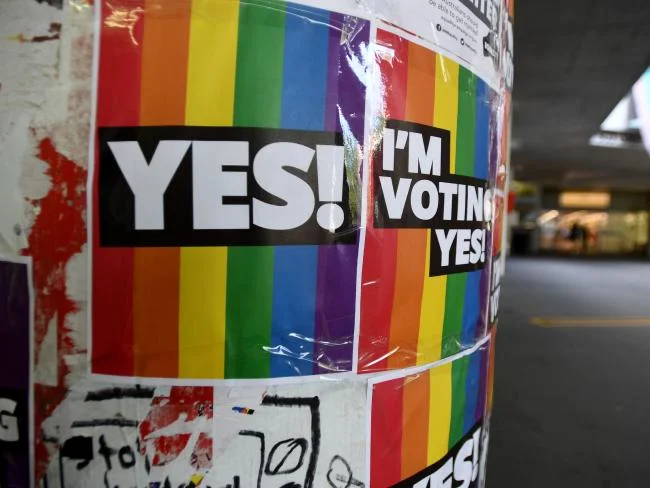We spend a lot of time as a local, national and global community considering the wellbeing of children and what is in ‘the best interest of the child’ when they are at risk of abuse and neglect. We spend much less time considering the rights and responsibilities of parents and other family members who have children in the care of child protection services. It is time for a Charter of Rights for Parents and Families, argues Sharynne Hamilton from the Telethon Kids Institute at the University of Western Australia.
Read MoreMelbourne was in shock following the rape and murder of well-loved comedian Eurydice Dixon on the 12 June 2018 as she was walking home from a comedy event. A vigil was held near where Eurydice Dixon died in Princess Park the following week and was attended by the over 10,000 people. Following the vigil, Julie Kun, CEO of WIRE (Women’s Information and Referral Exchange Inc), wrote the following article, posted on WIRE’s Facebook page and reposted with permission here.
Julie Kun is the CEO of WIRE, the only Victoria-wide free generalist information, support and referral service run by women for women.
Read MoreThe theme for this year's NAIDOC Week, held from 8-15 July 2018, was "Because of her, we can". In the following article, republished from IndigenousX with permission, Antoniette Braybrook calls for the ongoing celebration and acknowledgment of Aboriginal and Torres Strait Islander women, who work tirelessly for the community, and whose views and experiences are often invisible to policy-makers. Antoinette Braybrook is the CEO of Djirra (formerly the Aboriginal Family Violence Prevention and Legal Service Victoria) and the National Convenor of the National Family Violence Prevention Legal Services Forum. She also tweets @BraybrookA
Read MoreMental health problems in young people are increasing. Suicide remains a leading cause of death in those aged 15-24 worldwide. The majority of mental health problems develop before the age of 25 but have their roots usually in childhood and teenage years. If left untreated, mental health problems can persist into adulthood with poorer prognosis and greater disability over the life course. In this blog post, Maria Michail, Jo Robinson, Tina Yutong Li, Sadhbh Byrne explore how primary care services can become more accessible and acceptable to vulnerable young people. This post has been co-produced with young people with lived experience of mental-ill health and highlights the importance of making primary care health services more accessible, acceptable and equitable for vulnerable young people.
Read MoreThis week has seen a significant milestone in the fight against modern slavery as the Modern Slavery Bill was introduced into the Australian parliament. When passed, the law will require companies with an annual turnover of more than $100 million to report annually on the risks of modern slavery in their operations and supply chains, and on the actions to address these. Fiona McGaughey (University of Western Australia) and Justine Nolan (UNSW) explain more.
Read MoreTo round out your week, in this post from the CEO blog at the Centre for Social Impact, Professor Kristy Muir reflects on power, leadership, stepping outside of ourselves and knowing when one more marshmellow is one too many.
Read MoreIn an inspiring tale of grassroots activism, Dr Millie Rooney, coordinator of the Sustainability Integration Program for Students at UTas, relates how mentoring students to fight for the world they want helped them access their “power to persuade” to achieve policy change at their university.
Read MoreWayne Herbert is a disability professional, LBGTIQ activist and author. This is a lightly edited version of his speech given at TedX Canberra (2017) and to be given at the 2018 Canadian Association of Supported Employment Conference, explaining his experiences navigating life as a self-proclaimed ‘disabled gay’
Read MoreOne has to stretch the imagination to conceive that a new policy might result in health professionals in Britain considering whether to refer patients with mental health needs as radicalisation threats in order to gain quicker access to necessary support and services. In this post, Dr Chris Allen examines the un-intended consequences of the bizarre incentives catalysing the referral of mental health patients as radicalisation threats.
Read MoreAs many of you will no doubt know, the federal government wants to change a number of laws and regulations, all of which will limit the ability of charities to advocate on behalf of their communities. In this post cohealth's Lyn Morgain explores these changes and the disastrous impact they would have on the sector.
Read MoreCharities have long played a role in supporting and advocating for people when markets and governments fail. They have existed in Australian history since well before the welfare state and have continued to fill gaps either on behalf of government (with funding being directed from government to the third sector) or instead of government (with funding via other sources, such as philanthropy).It’s important for a stronger, equitable society that charities are able to continue to advocate for their “charitable purpose”.
Read MoreOn 2 September, the Women’s Policy Action Tank presented Putting Women at the Centre: A Policy Forum. We were delighted to have Celeste Liddle (@Utopiana), public commentator, blogger (Rantings of an Aboriginal Feminist), Arrernte woman, Unionist, and recent inductee onto the Victorian Honour Roll of Women as one of our keynote speakers. Here we present part 1 of her talk, in which she shares her personal experiences at university, how those compare with the experiences of Aboriginal and Torres Strait Islanders more generally, and how educational disadvantage accrues from a very young age for Indigenous Australians.
Read MoreThe Australian "postal survey" said YES to marriage equality, and in doing so rejected a number of false or misleading claims by opponents. As the Senate returns this week to resume debate on the Marriage Amendment (Definition and Religious Freedoms) Bill 2017, Jamie Gardiner examines the implications of the survey outcome for future reforms in addition to equal marriage.
Read MoreWhat can academics learn from how civil society organisations and NGOs approach policy impact? Julia Himmrich (@juliahimmrich) argues that academics have a lot to gain from embracing the practices of long-term advocacy. Advocacy is about establishing relationships and creating a community of experts both in and outside of government who can give informed input on policies. Being more aware of the political aspects of research can help academics understand and re-evaluate their own arguments about the impact of research.
Read MoreStalking as a phenomenon has been noted in human behaviour for well over a century. References to obsessive behaviour and the need to retain intimacy with another person can be seen in the writing of Victorian author, Louise May Alcott, who wrote Little Women. In her novel, A Long Fatal Love Chase, a woman is chased across the seas for years by her estranged husband, until he mistakenly kills her whilst trying to murder her new partner. Holding her dead body in his arms, the ‘stalker’ then kills himself and as he does so he says “Mine first - mine last – mine even in the grave!” This obsession to the point of murder is not a sensational, fictitious idea but a behaviour which is worryingly still prevalent within our society in 2017. In this blog post Victoria Charleston, Policy Officer at Suzy Lamplugh Trust explores stalking and potential implications for policy.
Read MoreAs part of the recently-held Women's Policy Forum, Jesuit Social Services CEO Julie Edwards and GetUp!'s Human Rights Campaign Director Shen Narayanasamy engaged in a conversation that explored the intersection between policy change and campaigning. Jesuit Social Services’ Policy and Advocacy volunteer Jemima Hoffman recaps the presentation, in a blog that originally appeared on the Jesuit Social Services website.
Read MoreDr. Paul Cairney is Professor of Politics and Public Policy at the University of Stirling in the UK and he has a message for us about how to make our evidence count. Paul is the author of The Politics of Evidence Based Policy Making (2016), which has already achieved cult status for politics enthusiasts worldwide. Read some of his insights in this week's blog post, originally posted on Paul's own blog.
Read MoreToday, Jasmine Ozge, a PhD candidate at RMIT living with disability, discusses the conjectural nature of disability, why disability is a strength, and the benefits of an inclusive society.
Read MoreBars, gyms, the homes of friends and all the places that community life happens; it’s no secret they are often inaccessible for people with disabilities. The NDIS funds individual packages and community linkages to reduce this social exclusion. Jen Hargrave from Women with Disabilities Victoria says the fledgling scheme may need external architecture to increase social inclusion.
Read MoreA growing number of organisations have explicitly supported the campaign for marriage equality in Australia. But as the debate has gathered momentum and a degree of heat in some quarters, some organisations have chosen to refrain from taking a public position, viewing the issue as one of personal conscience. In this adapted evidence review, Jason Rostant briefly outlines the public health case for health, community sector and other NGOs taking a public stance in support of marriage equality.
Read More







